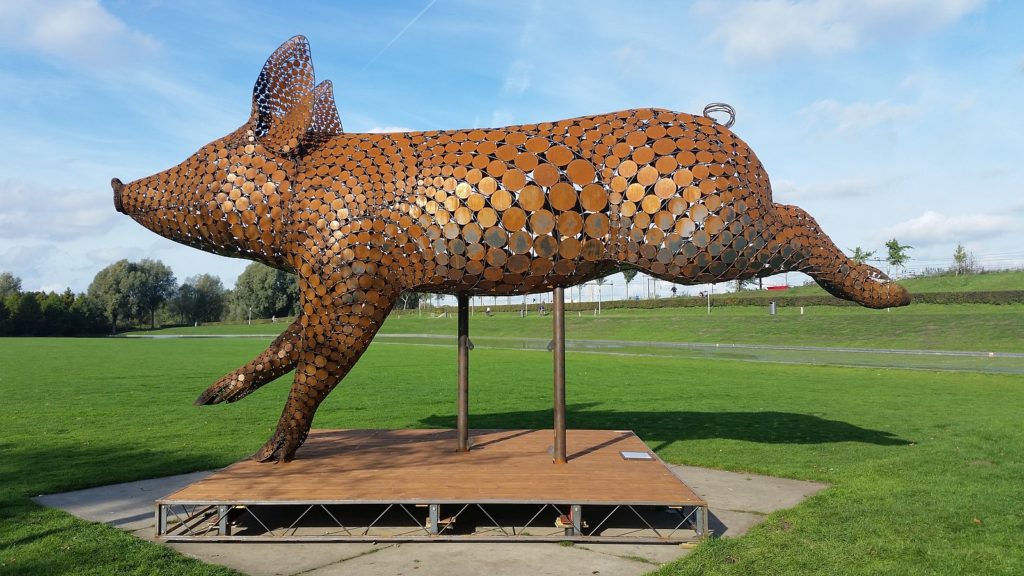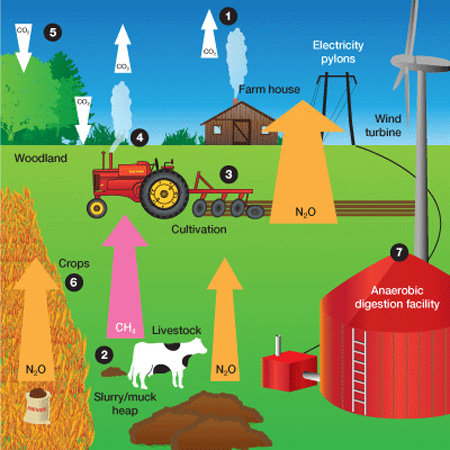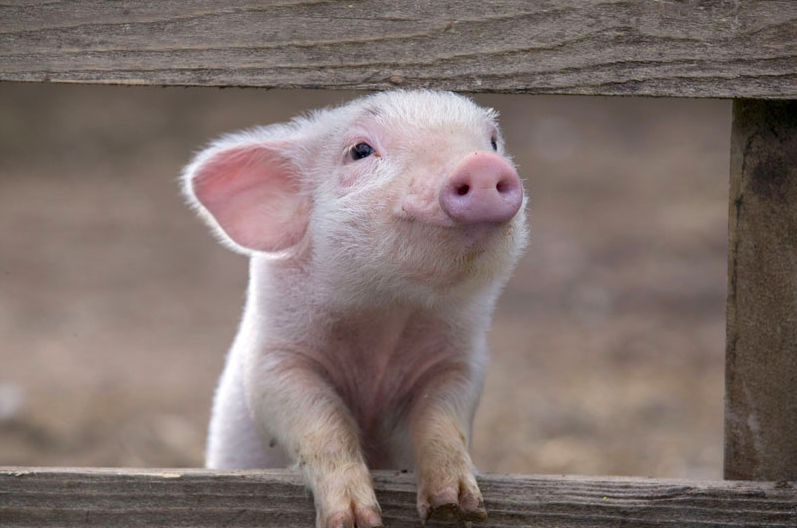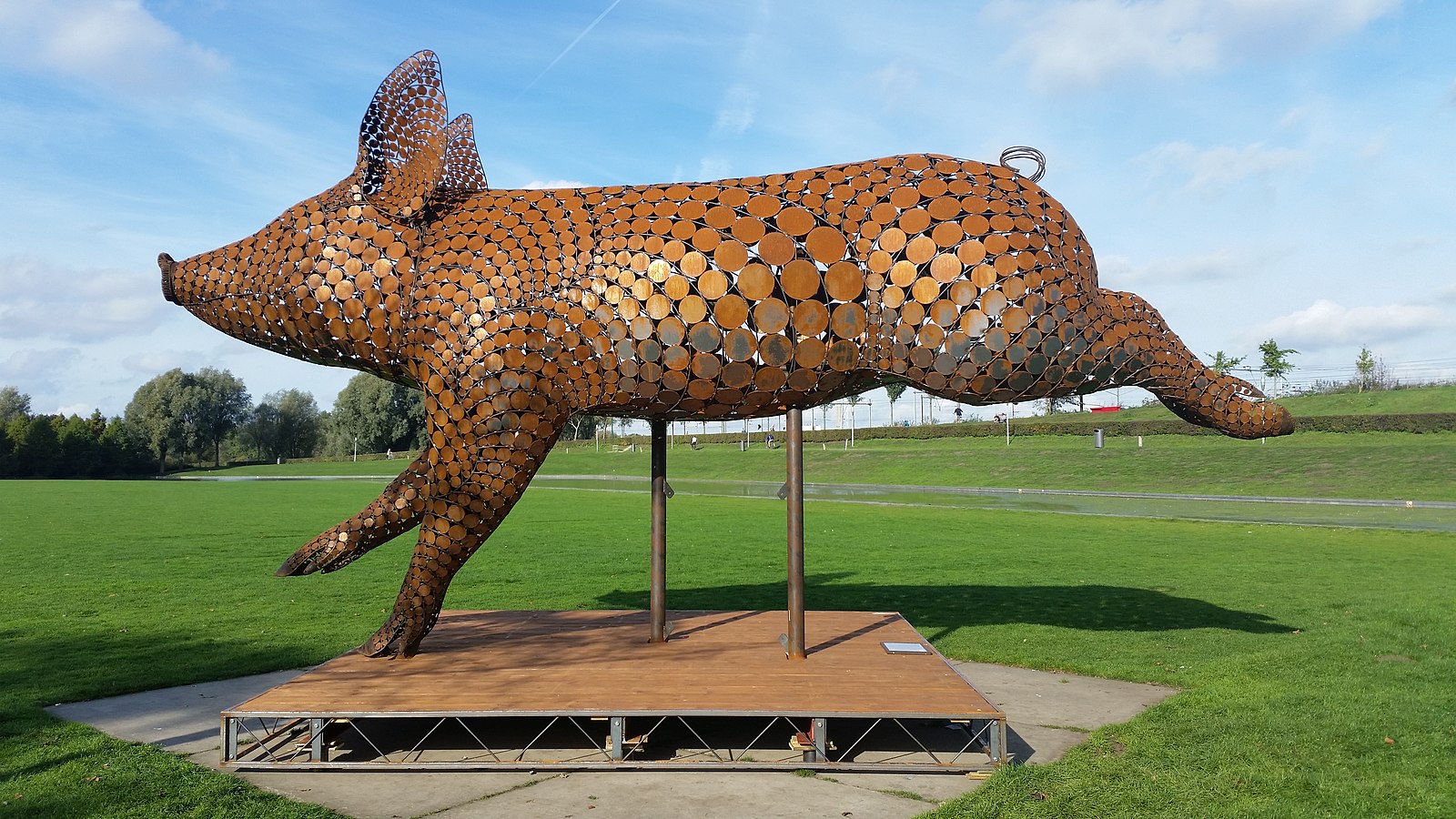
In the fifties, a great change in agriculture took place in Western Europe. After the war, politicians decided that famine should be banned forever. Mechanisation, larger scale production, and fertilizer transformed agriculture into a food producing industry. Everybody thought this was a good idea. Was it?
Bio-industry made it possible to provide a large food supply of constant quality for a low price. But it did not ban famine all over the world in an environmentally friendly way.
Most of the bio industry goes to one part of the bioindustry, which is the meat production. Cows, pigs and chickens must be fed. This costs roughly 7 times more surface, water, transport, et cetera, then just the crops (vegetables, soya) itself.
So, let us focus on the big chunk of what the bio industry really is.

Emissions
Worldwide, industrial animal farming emits 14% of the greenhouse gasses . The production of animal food is usually located far from the cattle, so this leads to large transportation, so more greenhouse gases and acid emissions. In such enormous quantities, the animal faeces, normally a fertilizer, causes problems. For example, it causes dead zones in rivers, Only algae can survive here. Also, the transportation of the livestock itself causes problems: millions of live animals are transported to be slaughtered elsewhere
Animal welfare
Industry alters animals to their demands by genetic modification. Also, industry physically ‘adjusts’ the animals, by cutting the tails and beaks, and castrating male pigs. Even so, because of the crowded housing situations, 8% of chickens break their bones and wings annually in the Netherlands. Cows often get inflammations of the udder. 40% of pigs carry the MRSA bacteria (meticilline-resistent staphylococcus aureus (MRSA) Since the mid 1990s there has been a succession of food and animal disease scares in the EU. These include for example mad cow disease (BSE), Avian Flu, Foot and Mouth Disease, Swine fever, Salmonella, Viral Pneumonia, Infectious Salmon Anaemia etc. Health officers killed tons of healthy animals to prevent the spreading of some of these diseases. Fire kills hundreds and sometimes thousands of animals when their stables burn.
Taxing
Most governments (at least the USA and the Netherlands, the two largest agricultural export countries) subsidise this kind of farming. So, you pay tax for the bio industry. Tide is changing, but not fast enough.
Summing it all up, we dare say, the bio industry is a wrong good idea. If you want to shape a better future, you can make a start:
- Eat less, or no meat
- Search for meat and fish that is produced and slaughtered locally and animal-friendly.
And, if you treat your animals with care, you might be rewarded with good food…


